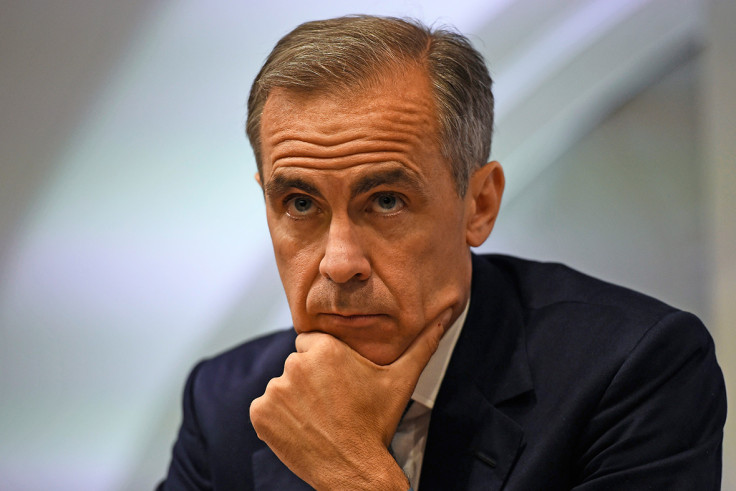The era of low interest rates is ten years old today – but savers won't send a cake
The financial crisis and last summer's Brexit vote has seen interest rates fall from 5.75% to 0.25%.

The era of low interest rates celebrates its tenth birthday today. It was a decade ago on 5 July 2007 that Britain last raised interest rates to 5.75% – the following decade has seen debt burdens eased for borrowers but the period has only meant pain for savers.
The financial crisis saw the Bank of England slash rates over the next 20 months from 2007 to 0.5%, and again in the aftermath of the Brexit vote last summer to 0.25%.
The Bank made the cuts to keep firms and consumers spending, so that credit markets would not freeze as they did in the weeks following the collapse of Lehman Brothers in 2008.
This has been good news for borrowers with the typical cost of a mortgage for Britain's seven million households who have one typically falling from 5.8% to 2.6%, according to financial services firm Hargreaves Lansdown.
For businesses this period has seen borrowing costs for a large company with a good credit rating fall from 6.4% in July 2007 to 2.8%, allowing them to keep investing and provide jobs.
But for savers the last decade has been one to forget. Over that period £1,000 held in a typical instant access savings account in July 2007 would be worth just £878 in today's money when the effects of inflation are taken into account.
This compares with £1,000 invested in the stock market, which is now worth £1,323 adjusted for inflation, even taking into account the near 50% drop in share prices in the two years following the financial crash.
Rising credit levels
But there are signs that consumers are beginning to binge on this cheap money, with UK consumer debt standing at £199bn, compared with £191bn in July 2007. Although household income has also risen over this period, which along with low interest rates make this debt more affordable.
However, the household debt to disposable income ratio, which peaked at 159.7% in 2008, has started to rise again, up from 139.9% in 2015 to 142.6% in 2016.
But this has led members of the Bank's Monetary Policy Committee, chaired by Governor Mark Carney, to send hawkish warnings about at rate rise this year to calm an economy weighed down by stagnating wages and sharply higher inflation.
"This all underlines the very difficult situation the Bank of England finds itself in," said Laith Khalaf, senior analyst at Hargreaves Lansdown.
"Raising rates will help to wean investors off borrowing, however it will also make the large existing stock of debt more expensive, which will eat into monthly budgets, putting downward pressure on spending and weighing on economic growth."
What the world got up to since Britain last raised interest rates
2007 - The subprime crisis
After a housing boom last years, the US' subprime mortgage bubble burst, triggering what economists consider the worst financial crisis since the Great Depression.
2008 - Lehman Brothers goes bust
The investment bank's involvement in the subprime mortgage crisis saw it file for bankruptcy, triggering a downturn that would sink Wall Street and global markets.
2009 - Blue Monday Crash
On 19 January, RBS announced the biggest loss in British corporate history, which saw its shares plunge 67%. Other major UK lenders also suffered heavy losses, with Lloyds Banking Group, HSBC and Barclays all falling sharply.
2010 - The debt crisis strikes
The European Union rescued Greece and Ireland through two bailout packages, subject to severe austerity measure, worth €110bn and €85bn respectively. Interest on government debt also spiked in Portugal, Spain and Italy.
2011 - Libya rocked by civil war
Following the Arab Spring uprisings in Tunisia and Egypt, Libya was plunged into a civil war, aimed at overthrowing Muammar Gaddafi's authoritarian regime, leaving 30,000 people dead.
2012 - The London Olympics
An estimated 900 million viewers worldwide tuned in to the opening ceremony of the London's Olympics, as sporting fever swept across the country.
2013 - Andy Murray wins Wimbledon
Having broke his Grand Slam duck when he won the US Open the year before, Murray finally got his hands on the Wimbledon crown, to become the first British men's winner since Fred Perry in 1936.
2014 - Tesco rocked by accounting scandal
In September, Britain's largest retailer revealed it had previously overstated its profits by £263m which it later revised up by £63m. The scandal saw eight executives suspended and £2.2bn wiped off the stock's market valuation.
2015 - Paris attacks
Simultaneous attacks, involving mass shootings and a suicide bombing, in the French capital killed a combined 130 people, including 89 at the Bataclan theatre.
2016 - Britain votes to leave the European Union
The vote cost Prime Minister David Cameron his political career, as a highly toxic campaign ended with the Leave campaign securing a surprising 52% to 48% win.
2017 - Ed Sheeran dominates UK charts
The British singer's ÷ album became the first record to have every song debuting in the UK's Top 20 singles chart. All 16 songs on the record were in the chart and all of his three albums were in the Top 5 albums.
© Copyright IBTimes 2025. All rights reserved.






















